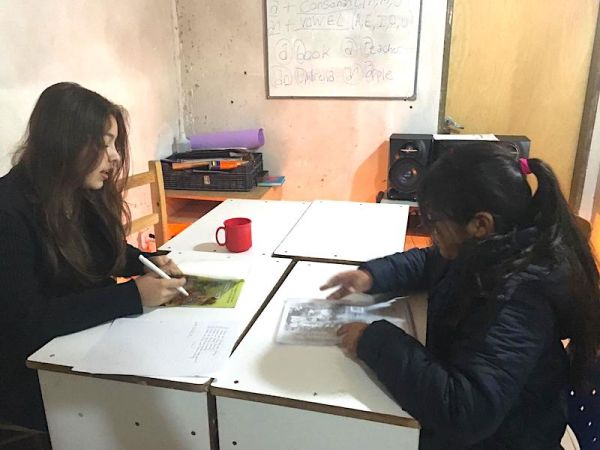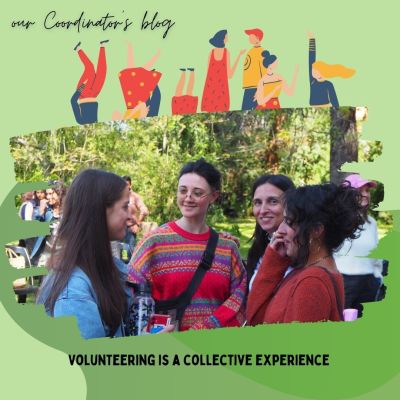In countries like Argentina where the gap between wealth and poverty is more visible, learning a second language such as english is a big challenge since the opportunities of getting an equal level of education depend of your social status.
This is the reality of our teaching english project, an institute located in Pablo Nogués where kids between the ages of 9 and 16 learn english with the help of foreign volunteers. Pam from the US & Alex from Germany are two of our volunteers who work here. Pam is colombian and speaks spanish and lives in Florida; Alex comes from Germany and arrived to Argentina with the idea to improve his spanish.
What are some of the bigger differences you’ve noticed in the education here in comparison to home?
P- When I first came here I was really impressed with the kids because they speak more English than my mom, who is colombian and lives in the US. I can hold entire conversations with the teachers and I think that’s so impressive because in the US someone takes 4 years of French and they can't say anything and the kids that come here have only been doing it for 5 years and they can communicate with me in English.
A- The schools here in Argentina have 8 years of English, as we do in Germany but I would have 3 hours each week and I can say now that I can speak it fluently. But here, they only have 2 hours per week and they can only say their names, some colors, how old they are but they can’t communicate. So I think after school learning facilities like this are really important because the quality of language education in schools is not that good.
What will you take home with you about this experience?
A- When kids come here and say “hey my parents can’t pay because they don’t have the money” the founder would say “ok just pay what you can”. I think it's great because English is an opportunity for them to be able to go anywhere in the world and also to be able to settle in English speaking countries and work there.
P-I wish a lot more people would do this because in the US we are so privileged to have French in school and completely fail at it, it’s such a waste of resources. Per month for one student is 20 dollars, that’s like one meal for me. If I could just give that money of a meal every month, I could sponsor one kid for a year. That’s a whole language, a whole door of opportunities.





